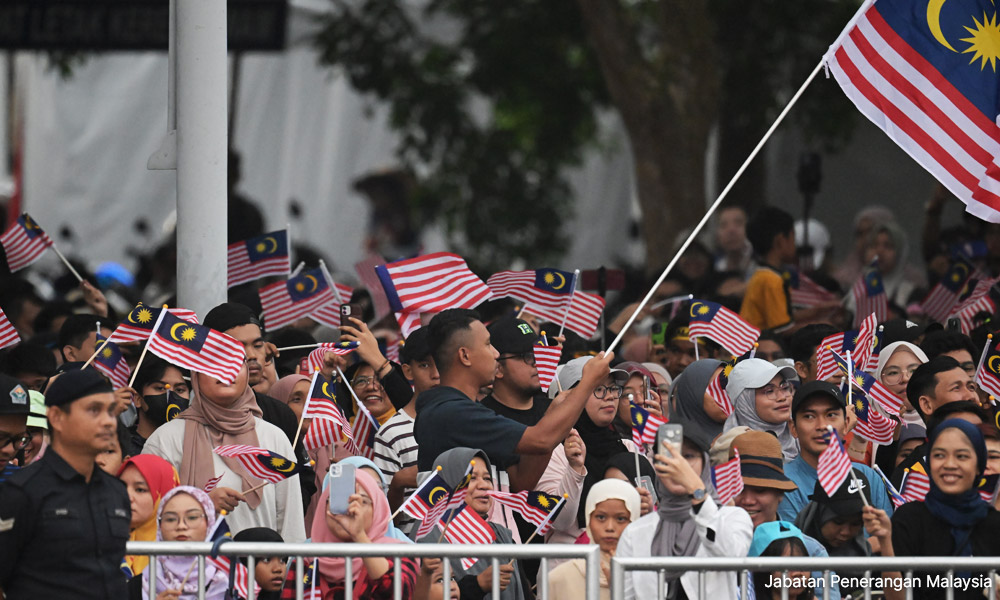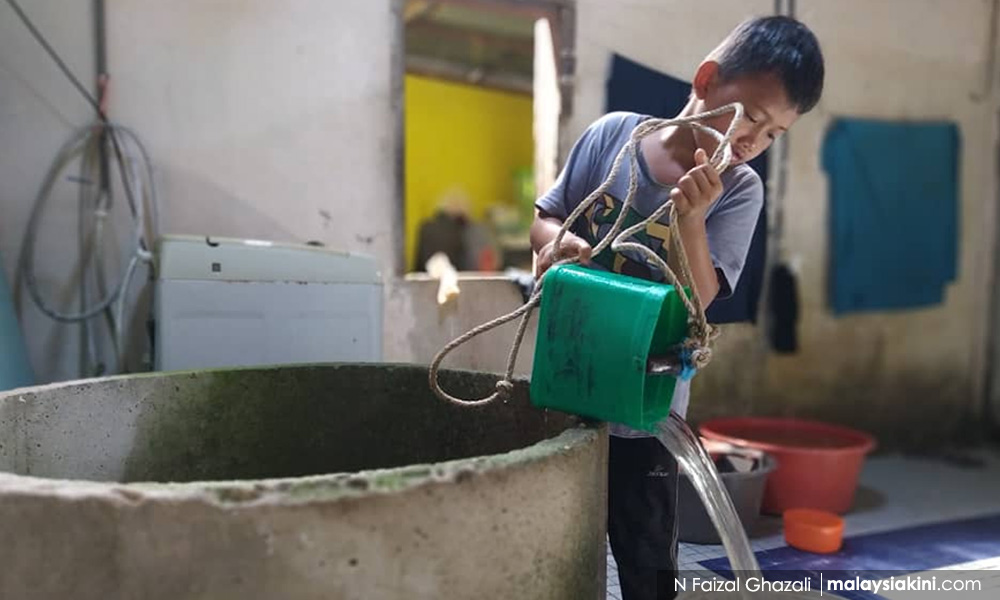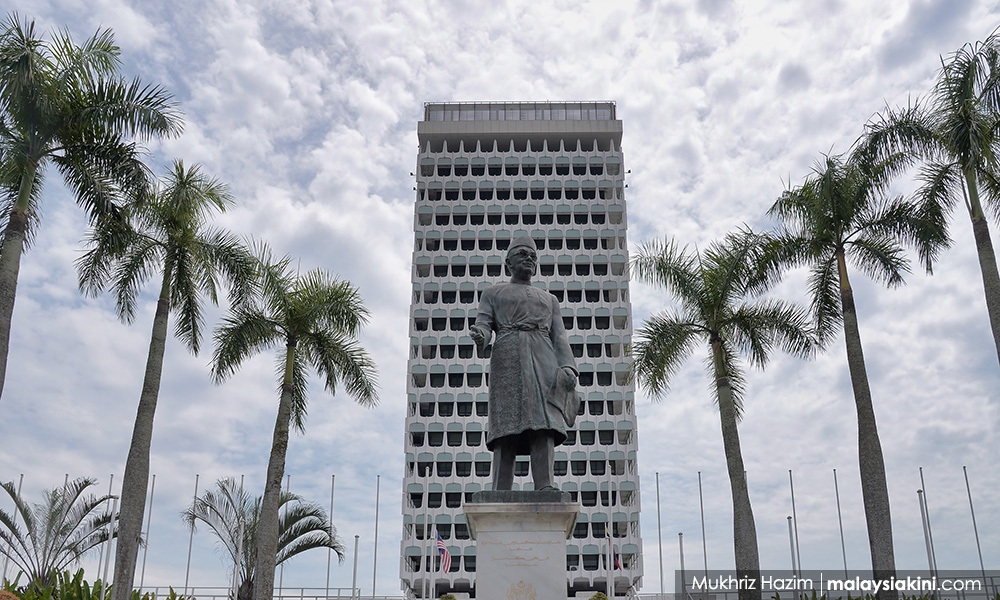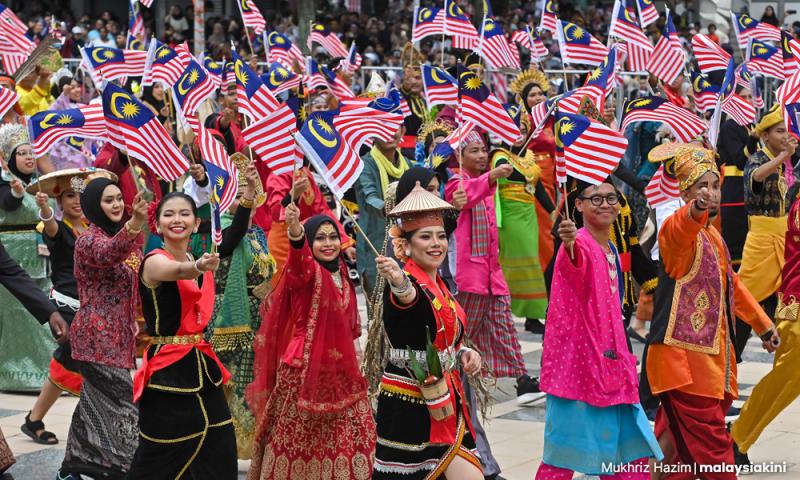MP SPEAKS | Moving Malaysia forward at 60
MP SPEAKS | Malaysia is now 60 years old. On Sept 16, 1963, Malaya, Sabah, Sarawak, and Singapore came together to form a new nation.
Singapore left after a few years but Malaysia has forged ahead.
The great thing about countries is that they are not bound by human years.
Yes, Malaysia might be considered “old” at 60, but it is also still young and so are its people - our median age is just 30.7 years old.
I like to think that this means our country has time to grow for the better; that Malaysia will never be written off if its people love it and work for its advancement.
More needs to be done
The last couple of years have been traumatising and exhausting due to the Covid-19 pandemic and its dislocations, plus the political turmoil some seem intent on reviving.
Sept 16 is also a reminder that much needs to be done to fulfil the spirit of the 1963 Malaysia Agreement and to do justice to our Orang Asal communities.
Malaysia is not Malaysia without Sabah and Sarawak or our indigenous communities, but genuine federalism must be worked for.
I believe in Malaysia and its people. I believe our best days are ahead of us even as we confront legacy challenges like reforming our economy and moving beyond racial politics as well as new ones like climate change.
We only have this one country - just as we only have this one planet.

And so, despite the doubts and questions that will always be among us - because Malaysians are wise, discerning people - I ultimately am hopeful for the future.
But for the rakyat to share this, Malaysia must be a land that cherishes and nourishes all its people - whatever their religion, ethnicity, or place of origin.
Strengthening the fabric of the nation
These are not hollow words. The unity government led by Prime Minister Anwar Ibrahim has laid out plans and frameworks - such as the Malaysia Madani, Madani Economy, and National Energy Transition Roadmap (NETR) - that will not only strengthen our country’s prosperity but also bind it closer together.
Indeed, for the Natural Resources, Environment and Climate Change Ministry (NRECC), there’s much we will have and will deliver.
The prime minister has returned gas and electricity regulations back to Sabah.
We are supporting, within the framework of NETR, the Sarawak government’s commendable efforts to develop the state as a hydrogen hub.
Sabah has sought to ‘green’ its palm oil industry through wildlife corridors in its plantations.
The NRECC under my watch has institutionalised the Ecological Fiscal Transfers (EFT) to states to support forest conservation, with the available funds increased to RM150 million under Budget 2023.
Anwar has pledged a resolution to the water supply issues affecting Kelantan and Sabah - including an RM800 million immediate assistance for both under the Mid-Term Review of the 12th Malaysia Plan (12MP).

Malaysia will be able to accomplish much if its leaders and people work together rather than in isolation.
Climate action should transcend politics
Ensuring water security, strengthening flood mitigation, reducing pollution, conserving our biodiversity, facilitating a just energy transition to a low-carbon economy, and addressing climate change must transcend partisan politics.
These are existential challenges. Whatever our political or personal beliefs, we must work together to meet them or the country will die.
The unity government has always treated these questions as national missions and we hope all Malaysians will as well.
Malaysia’s democracy remains intact
Sept 16 should also remind us that our democracy should not be taken for granted.
Indonesia’s Jakarta Post, writing about our August 2023 state elections, noted that: “Malaysian voters deserve praise and respect from their neighbours, many of whom are still struggling to have their voices heard by their own governments, for their political maturity, which permits the country to define its direction, as demonstrated in the peaceful and fair by-elections… Despite its imperfections, Malaysian democracy sets a good example for other Asean members that maintain military dictatorships or resist civil liberties.”
The unity government has committed to institutional reforms and we will keep to that pledge.
No one is calling for complacency, but the fact is that Malaysia’s democracy remains robust.
I would like to think that the many criticisms against the unity government - whether in the mainstream or social media and civil society - is a sign that liberty is not only surely taking root in our country but also that its people care passionately about its fate.
The right to make such criticism must be respected.

Malaysia’s multiracial democracy must be defended. There is no need to be apologetic about attempting to uphold both needs-based empowerment and the bumiputera agenda.
Avoid polarisation, restore trust
But we must guard against polarisation; of partisanship calcifying until our people have seemingly no common ground on anything at all - as is becoming painfully apparent in the West.
Dissent is not disloyalty. But Malaysia will get nowhere fast if both leaders and rakyat are paralysed by arguments about political purity if there is no trust and faith - which is always a two-way street.
I admit those are two of the hardest things to ask Malaysians for today.
The unity government will seek, in the years ahead, to provide the leadership and performance that can restore and strengthen trust.
I hope for the honest opinions of all Malaysians about my work and actions. But we also need your support and your goodwill.
Tunku’s dream must be fulfilled
On Sept 16, 1963, our founding father Tunku Abdul Rahman proclaimed:
“…let every Malaysian… ensure that our Malaysia is truly worthy of the aims and hopes we have shared, the trials and stress we have endured, in working together to achieve our common destiny.”
Tunku’s dream for Malaysia must come to fruition. And it will.
Selamat Hari Malaysia to all Malaysians.
NIK NAZMI NIK AHMAD is Malaysia’s natural resources, environment and climate change minister and Setiawangsa MP. He is the author of the book ‘Malaysian Son: A progressive’s political journey in the heart of Southeast Asia’. This column is written in his personal capacity.
The views expressed here are those of the author/contributor and do not necessarily represent the views of Malaysiakini.
RM12.50 / month
- Unlimited access to award-winning journalism
- Comment and share your opinions on all our articles
- Gift interesting stories to your friends
- Tax deductable
